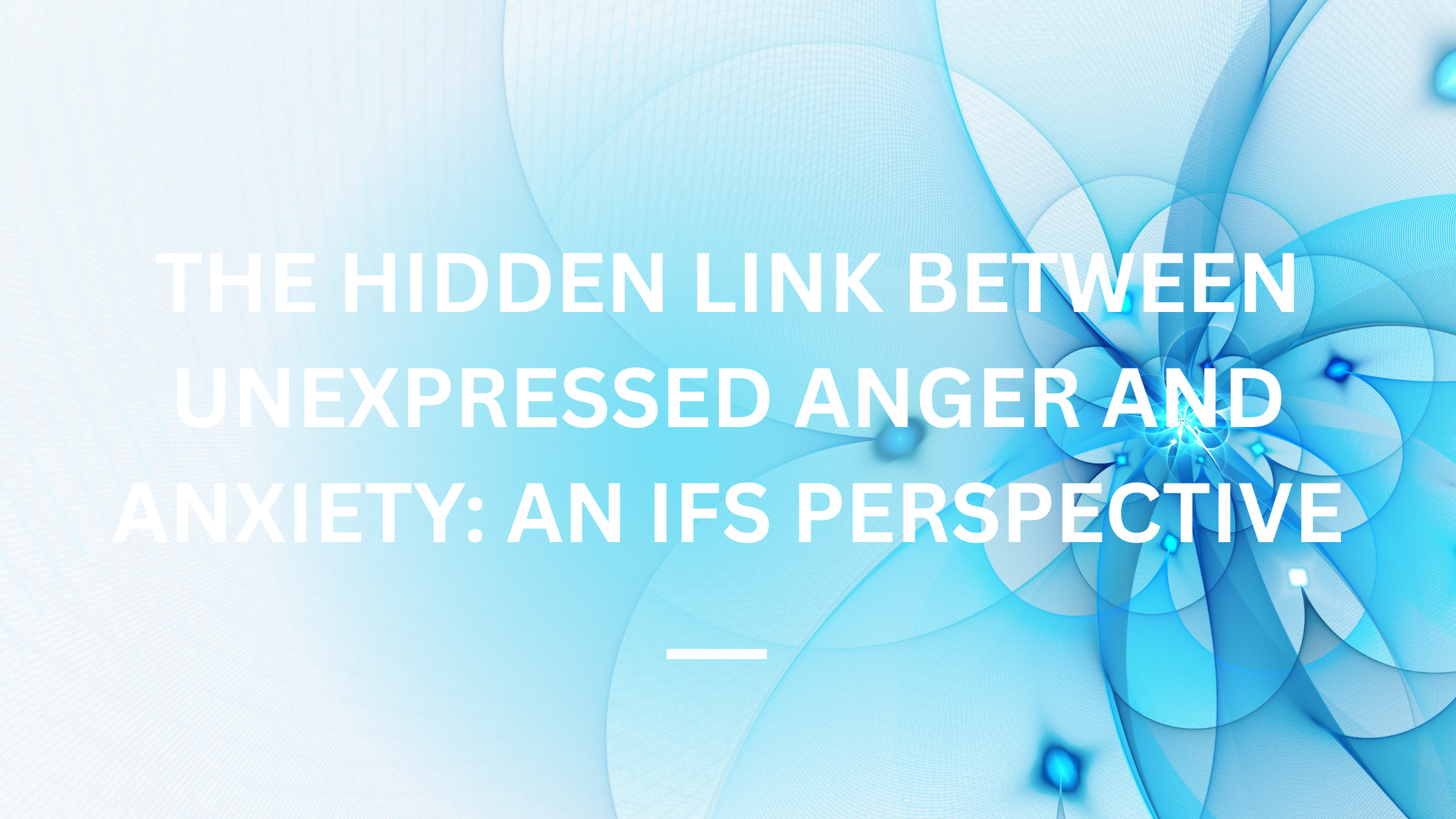The Hidden Link Between Unexpressed Anger and Anxiety: An IFS Perspective
Unexpressed Anger and Anxiety
When Anger Turns Into Anxiety
Many people who struggle with anxiety describe feeling constantly on edge, restless, or afraid of doing something “wrong.” Yet, underneath these anxious feelings, there is often another emotion waiting to be acknowledged—anger.
In many cultures, anger is often misunderstood. Especially for those who grew up in families or environments where expressing anger was seen as disrespectful, unsafe, or shameful, this emotion can become deeply buried. Instead of feeling or expressing anger, we learn to suppress it. But what happens when anger is pushed down too long? It doesn’t disappear—it transforms, often into anxiety, tension, or self-criticism.
⸻
How IFS Helps Us Understand This Connection
From the Internal Family Systems (IFS) perspective, we all have different “parts” within us—inner voices or subpersonalities that carry emotions, beliefs, and roles developed through our life experiences.
When it comes to unexpressed anger and anxiety: • Angry parts often hold energy that wants to set boundaries or speak truth. • Protective parts may fear that expressing anger will lead to rejection or conflict. • Anxious parts may then take over, trying to keep us safe by keeping everything under control.
In this inner system, anxiety becomes a protector—an attempt to manage the anger that feels too dangerous to show.
⸻
The Body Keeps the Story
Unexpressed anger doesn’t just affect the mind—it lives in the body. Tight shoulders, shallow breathing, a racing heart, or chronic muscle tension can all be signs that a part of you is holding emotional energy that hasn’t found a safe way out.
Through IFS therapy, we learn to approach these sensations and emotions with curiosity instead of judgment. We gently get to know the parts of us that feel angry, anxious, or afraid—and help them feel seen, understood, and safe.
⸻
Healing Through Compassionate Inner Dialogue
IFS doesn’t force anger to go away; it invites it to be understood. As you build a compassionate relationship with your angry and anxious parts, you begin to notice: • Greater emotional balance • More ease in your body • Increased self-trust • Healthier communication and boundaries
Healing happens not by pushing feelings away, but by welcoming all parts with compassion.
⸻
If This Resonates With You
If you often feel anxious but suspect there’s more underneath—perhaps frustration, hurt, or resentment—it might be time to explore these emotions safely with support.
At Inward Counselling, I offer a gentle, compassionate space to explore your inner world through the lens of Internal Family Systems therapy. Together, we’ll uncover what your anxiety is trying to protect and help you reconnect with your natural calm and confidence.You don't have to face your anxiety alone. Begin your journey inward with compassionate support.

